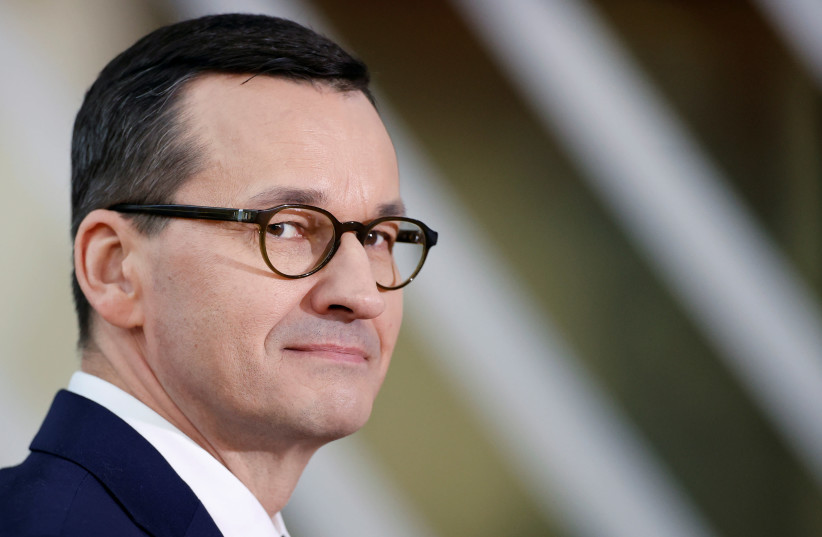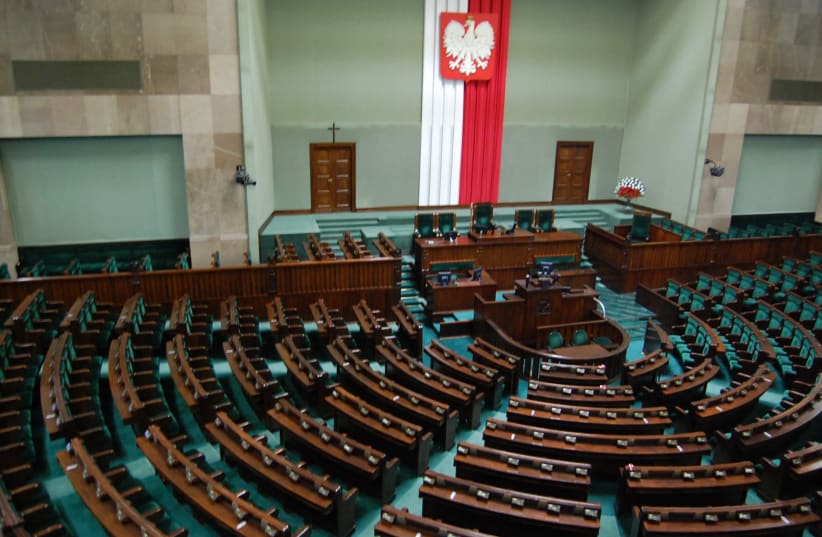Before the Holocaust, Poland was home to more than three million Jews and was one of the largest Jewish communities in the world. However, the majority of Jewish Poles were murdered in ghettos, death camps and concentration camps in German-occupied Poland – including Auschwitz-Birkenau, the largest of the German Nazi concentration camps.
Polish President Andrzej Duda brought shame on his country and stirred painful memories among the descendants of the Jews who perished in Poland when he decided to sign a controversial bill into law that places a 30-year statute of limitations on restitution claims for property that had been seized by the Nazis and then retained by Poland’s Communist regime.
While not specifically mentioning Jews, the law makes it virtually impossible for all former Polish property owners to secure redress for property illegally seized during the Communist era – including all the Jewish property owners who were stripped of their possessions by the Nazis.
Duda pledged that his country would not pay restitution to Holocaust survivors for German crimes committed against them on its territory during World War II.
The move has resulted in a severe crisis between Israel and Poland, which had previously enjoyed a strong relationship, with Warsaw being one of Jerusalem’s staunch allies in the European Union.
Instead of trying to smooth things over and keep feathers unruffled, Israel’s response, led by Foreign Minister Yair Lapid, has correctly been forceful and adamant.
Decrying the “laws meant to harm the memory of the Holocaust and the Jewish people,” Lapid accused the Poles of purposeful antisemitic behavior.
“The days in which Poles hurt Jewish people without a response are over and will not return,” Lapid warned on Saturday. “Today the Jews have their own proud and strong state. We are not afraid of antisemitic threats and have no intention of blinking in the face of the anti-democratic Polish government’s shameful behavior.”
Lapid went further than words, announcing that Israel’s envoy to Poland, Tal Ben-Ari Yaalon, would be recalled for consultations and that Jerusalem would not be sending Ambassador-designate Yacov Livne to Warsaw in the near future.


Polish Prime Minister Mateusz Morawiecki rejected Israeli accusations of antisemitism over the law.
“No one who knows the truth about the Holocaust and the suffering of Poland during World War II can agree to such a way of conducting politics,” he said in a Facebook post.
Poland’s refusal to accept responsibility for its role in the Holocaust is its Achilles’ heel. While most post-Communist countries have sought to right historical wrongs and address the issue of stolen Holocaust-era Jewish property, Poland has lagged behind, claiming it was the Germans, not the Poles, who were responsible for the atrocities against Jews in the Holocaust.
In fact, in 2017, Poland enacted a law making it illegal to accuse Poland or the Polish people of being responsible for World War II or the Holocaust. Many Israeli officials condemned the law, including then-president Reuven Rivlin, who said that Poland and the Poles “had a hand in the extermination” of Jews in the Holocaust.
The passing of the Polish bill has not just rankled Israel. The US has stood by the Jewish state, with Secretary of State Antony Blinken saying that Poland must find a way to justly compensate victims of the Holocaust for property confiscated from them.
“We deeply regret the adoption of these amendments,” Blinken said, while urging the Polish government “to consult with representatives of affected parties and to develop a clear, efficient and effective legal procedure to resolve confiscated property claims and provide some measure of justice for victims.
“In the absence of such a procedure, this legislation will harm all Polish citizens whose property was unjustly taken, including that of Polish Jews who were victims of the Holocaust,” he said.
Poland’s bald attempt to heap another injustice on the millions killed in the Holocaust on its soil is nothing short of outrageous.
As Foreign Ministry spokesman Lior Hayat astutely said this week, “This story is absolutely not about money. It’s about memory and responsibility.”
